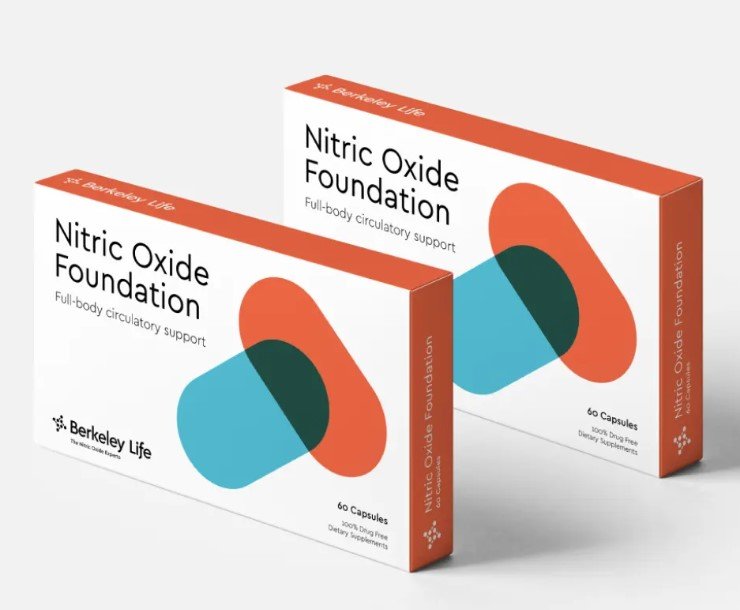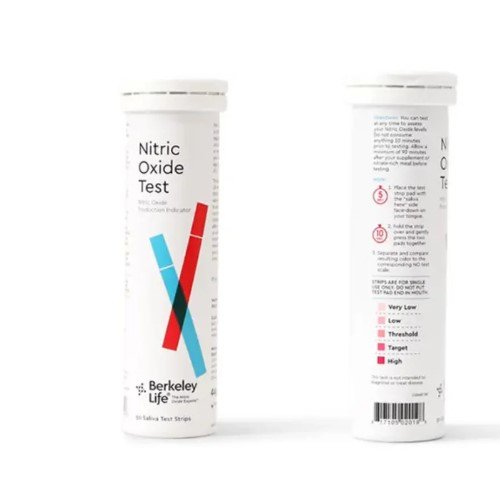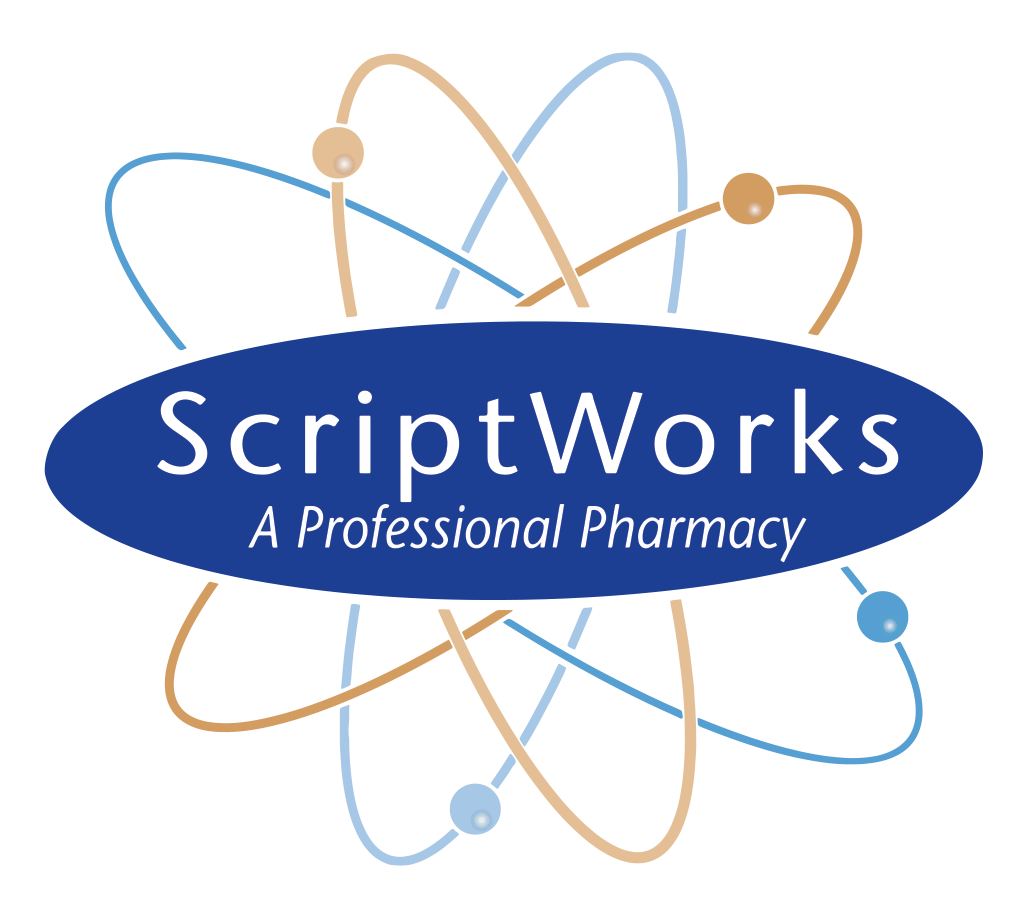
Author: Bob Brensel | President, Pharmacist | ScriptWorks
Bob Brensel, RPh, earned his Pharmacy Degree at University of the Pacific in Stockton, California in 1980. Former California Pharmacists Association’s Award Winner for Recognition of Outstanding Achievement in Compounding Pharmacy. Read More →
Giving Your Cardiovascular and Sexual Health More Love
If you’ve ever wondered about the secret behind your body’s ability to regulate blood flow, maintain cardiovascular health, and even facilitate nerve communication, look no further than a tiny molecule known as nitric oxide.
This unassuming gas, produced by your body, plays a pivotal role in countless physiological processes, earning it the nickname, the molecule of many wonders. In this blog, we’ll explore the fascinating world of nitric oxide and why it’s so important for your health. As a matter of fact, research and its implications on cardiovascular health led to the awarding of the Nobel Prize in Medicine and Physiology in 1998.
The Basics of Nitric Oxide
Nitric oxide, often abbreviated as NO, is a simple molecule composed of one nitrogen atom (N) and one oxygen atom (O). While it may sound basic, its impact on the human body is anything but. NO is a gas that serves as a potent signaling molecule. It’s produced and released by various types of cells, including endothelial cells that line the inside of blood vessels, neurons in the nervous system, and immune cells. Here’s a closer look at its many vital functions:
1. Vasodilation and Cardiovascular Health
Perhaps the most well-known role of nitric oxide is its ability to relax and dilate blood vessels, a process known as vasodilation. When the endothelial cells in blood vessels produce NO, it signals the surrounding smooth muscle cells to relax. As a result, blood vessels widen, reducing blood pressure and ensuring optimal blood flow. This action is crucial for maintaining cardiovascular health, as it helps prevent hypertension and atherosclerosis, promoting a healthier heart and circulatory system.
2. Neurotransmission
In the nervous system, nitric oxide acts as a neurotransmitter, facilitating communication between neurons. This communication is vital for various cognitive functions, such as learning and memory, as well as regulating behaviors. The release of NO by neurons influences the behavior of neighboring cells, creating a network of signaling that underlies our thoughts and actions.
3. Immune Response
Nitric oxide also plays a role in the body’s defense against pathogens. Immune cells, particularly macrophages, produce NO to combat invading microorganisms. NO acts as a cytotoxic agent, damaging or killing bacteria, viruses, and other pathogens. It’s also involved in regulating immune responses and inflammation.

4. Wound Healing
When you get injured, nitric oxide steps in to assist with the healing process. It promotes the growth of new blood vessels, a process called angiogenesis, and facilitates tissue repair. By regulating cell migration and activity during wound healing, NO plays a critical role in the body’s ability to recover from injuries.
ScriptWorks offers complimentary, non-invasive saliva tests for Nitric Oxide levels with immediate results. On your next trip in, ask to be tested for Nitric Oxide levels. ScriptWorks carries Berkeley Labs Plant-Based Nitric Oxide Supplements.
5. Exercise Performance
If you’ve ever felt that burst of energy during physical activity, you can thank nitric oxide. When you exercise, your body increases NO production, which, in turn, enhances blood flow to your working muscles. This heightened blood flow delivers more oxygen and nutrients, improving your exercise performance and endurance.
6. Erectile Function
For men, nitric oxide plays a crucial role in achieving and maintaining an erection. It relaxes the smooth muscle cells in the blood vessels of the penis, allowing increased blood flow and engorgement of the erectile tissue.

7. Cell Signaling
NO serves as a signaling molecule in various cellular processes, including cell growth, differentiation, and apoptosis (programmed cell death). It helps regulate communication between cells and modulates their behavior.
8. Neuroprotection
In the realm of neuroprotection, nitric oxide steps in to protect neurons from damage and degeneration. It plays a role in regulating blood flow to the brain and possesses antioxidant properties, which contribute to its neuroprotective effects.
9. Regulation of Oxygen Levels
Nitric oxide also plays a role in regulating oxygen levels in tissues. It helps match blood flow to the oxygen demands of different tissues, ensuring efficient oxygen delivery and utilization.
The Body’s Unsung Hero: Nitric Oxide
Nitric oxide is undoubtedly a remarkable molecule, often dubbed “the molecule of many wonders” for its diverse and critical roles in the body.
From promoting cardiovascular health and neurotransmission to supporting the immune system and aiding in exercise performance, it’s clear that NO is an unsung hero of our physiological processes. Understanding and appreciating the importance of NO can lead to better insights into maintaining overall health and well-being.
So, next time you think about the amazing functions your body performs, remember that a tiny gas molecule, nitric oxide, is working behind the scenes to make it all possible. It’s a testament to the intricate and sophisticated design of the human body.
Nitric Oxide (NO) Support Supplements
We recommend Nitric Oxide Foundation capsules, which are gluten free, dairy-free, and vegan.

Testing Nitric Oxide (NO) in Second
Stop by ScriptWorks to find out if your Nitric Oxide is low. We offer a complimentary saliva test that renders immediate results. See you soon!
480 North Wiget Lane, Walnut Creek, California 94598


